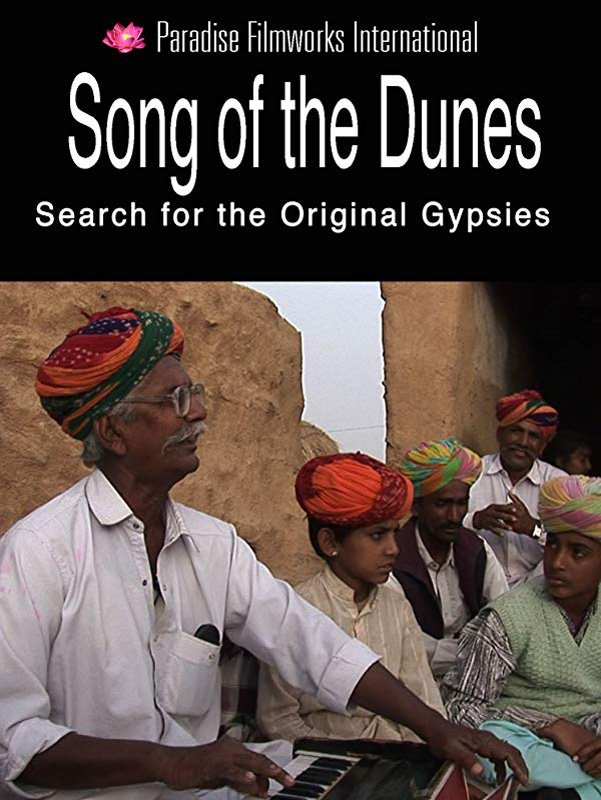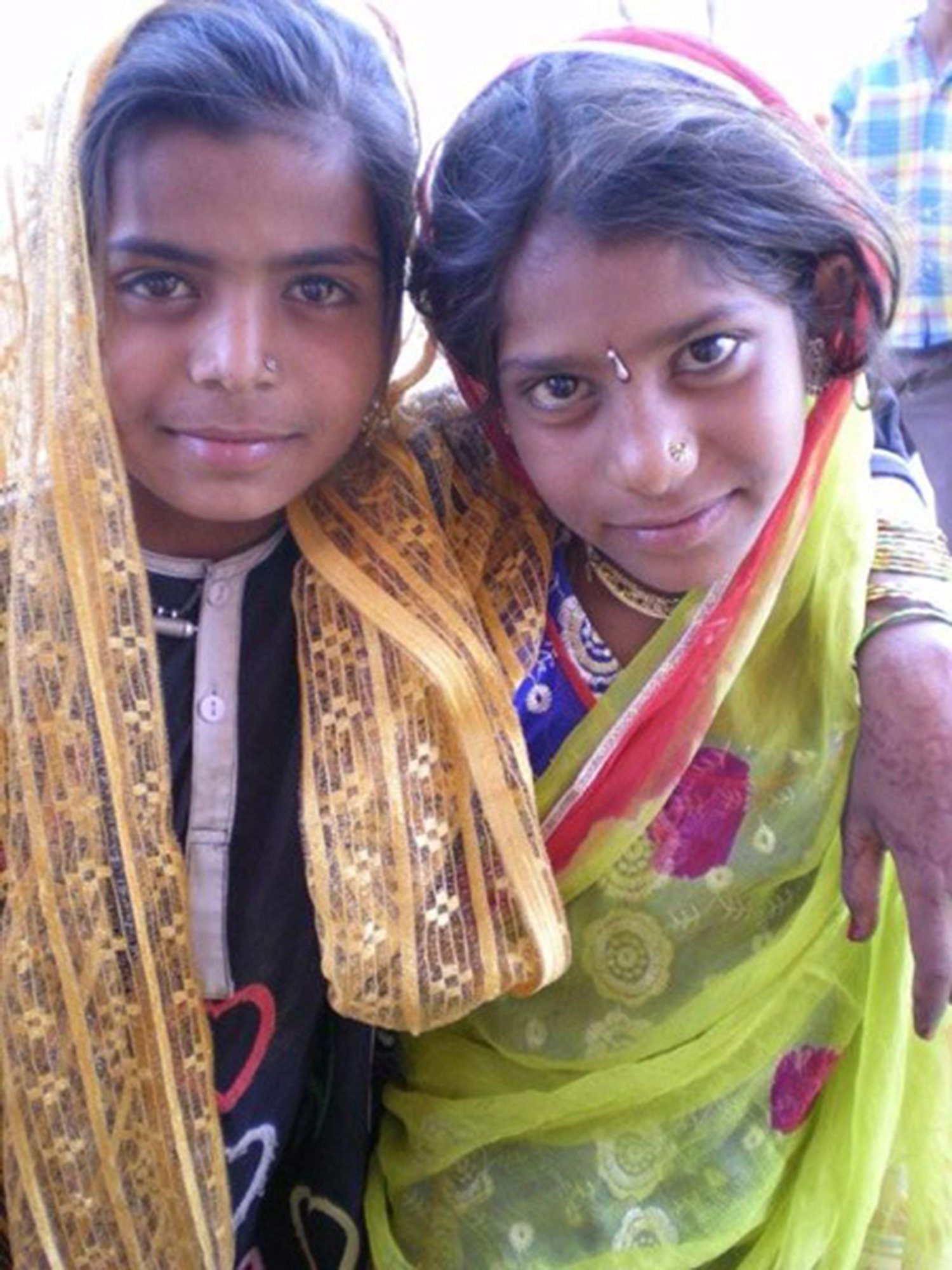
Song of the Dunes
Paradise Filmworks is pleased to bring you Song of the Dunes: Search for the Original Gypsies, and the story of India’s caste system. It is important to shed light on how the Merasi, other Untouchables, and gypsies continue to be persecuted today around the world. Their stories can finally begin to be told.
Song of the Dunes
Tribes of musicians have lived in the Thar Desert along the India-Pakistan border for a thousand years. Song of the Dunes shines a light on the desperately hard lives of “Untouchable” caste musicians in India’s Rajasthan state today. Over the centuries, the ancestors of these humble musicians have performed in the region’s royal courts. Today, Rajasthan’s traditional musicians play for tourists while struggling to hold on to their homes in the face of road-building projects and luxury developments. The film features His Highness Gaj Singh II, Maharaja of Jodhpur. Song of the Dunes won the Silver Lei Award for Excellence in Filmmaking at the 2009 Honolulu Film Festival.
-
Paula Fouce and William Haugse’s docu-portrait of the indigent folk musicians of Rajasth serves as a powerful illustration of the fragility of these musicians’ livelihood, and the unintended consequences of modernization. As a glimpse of a rarely seen and strikingly harsh way of life, it’s fascinating. “Song of the Dunes” could be a valuable teaching tool for schools and cultural centers.
Variety
Paradise Filmworks is pleased to bring you Song of the Dunes: Search for the Original Gypsies, and the story of India’s caste system. It is important to shed light on how the Merasi, other Untouchables, and gypsies continue to be persecuted today around the world. Their stories can finally begin to be told.
Tribes of musicians have lived in the Thar Desert along the India-Pakistan border for a thousand years. Song of the Dunes shines a light on the desperately hard lives of “Untouchable” caste musicians in India’s Rajasthan state today. Over the centuries, the ancestors of these humble musicians have performed in the region’s royal courts. Today, Rajasthan’s traditional musicians play for tourists while struggling to hold on to their homes in the face of road-building projects and luxury developments. The film features His Highness Gaj Singh II, Maharaja of Jodhpur. Song of the Dunes won the Silver Lei Award for Excellence in Filmmaking at the 2009 Honolulu Film Festival.
Today, low caste Indians still suffer from discrimination and hate crimes, as reported in the news recently. They suffer from rapes, murder and harassment, even though the caste system is outlawed. Education and opportunity is often not available.
Synopsis
William Haugse, A.C.E., an Oscar® nominee for Hoop Dreams, and Paula Fouce co-directed Song of the Dunes. Paula Fouce and Tim Kettle produced. William Haugse and Vanessa Abbott edited, and The Song of the Dunes team includes EMMY™ Award-winning director of photography Christopher G. Tufty; creative consultant Maria Florio, an OSCAR™ winner for the documentary Broken Rainbow; editorial consultant Lisa Leeman, and composer Luciano Storti. Members of the team have previously collaborated on India-themed documentaries including Not In God’s Name: In Search of Tolerance with the H.H. the Dalai Lama (PBS), Naked In Ashes, and Origins of Yoga: Quest for the Spiritual.
About the Musicians from the Thar Desert
Here on the India Pakistan border lies the Silk Road where camel caravans have carried precious wares for millennia across Asia and China. Huge Forts rise like mirages in hundreds of miles of deserted sand dunes. Besides a few small villages, the only other thing here is Pokran – the testing site for the nuclear bomb.
The Manganiyar and Kalbelia tribes are hereditary caste musicians, born into their station in life due to the ancient Hindu castes system, a hierarchy of professions and status. In the countryside, it is still alive today. Their station in life is dictated by this system, and they are trapped on the bottom rung of society, without opportunity. Many have converted to Islam to escape their dire prospects. Often by following the mystical sounds of the wandering Sufi minstrel – saints.
Nowadays, since the demise of the princely states when India became a republic, the musicians no longer have Royal patronage. They depend on tourism and local marriages and ceremonies for their livelihood. The Manganiyars of Kanoi village near Jaisalmer are exceptional musicians, no longer able to play in the courts of the Maharajas of Rajasthan. The Khans are a family of musicians who struggle to even afford their marriage ceremonies. Right now, Ideh is ready to marry and can’t, and his father Channan teaches the village boys music to make ends meet.
The Kalbeliyas of Jodhpur are a tribe of snake charmers, only the charming of the cobras that is their usual bread and butter is banned. Pooma the snake charmer is wondering how to survive. The Kalbeliyas are in a struggle to keep their homes, as the government doesn’t recognize them, they have squatted on their land. And now nine of the homes in their close knit village are being knocked down. Dhakon the healer, and Ponam Nath the snake charmer are both at risk. And they are the very ones who keep their traditions alive.
They implore the film crew to take a letter to the Maharaja of Jodhpur, requesting his help. Known as a kindly figure, the Maharaja, living in his stately palace, does all he can to help them.
Neither the Manganiyars nor the Kalbeliyas are allowed to worship in the small Hindu temples in the countryside around Jaisalmer and Jodhpur. Finally after years of struggle, the tribe is dedicating a temple they have built to their patron God, Guru Kanipav Nath. In a huge festival, they celebrate this great moment and rejoice at the wonderful occasion of finally reaching the point.
























